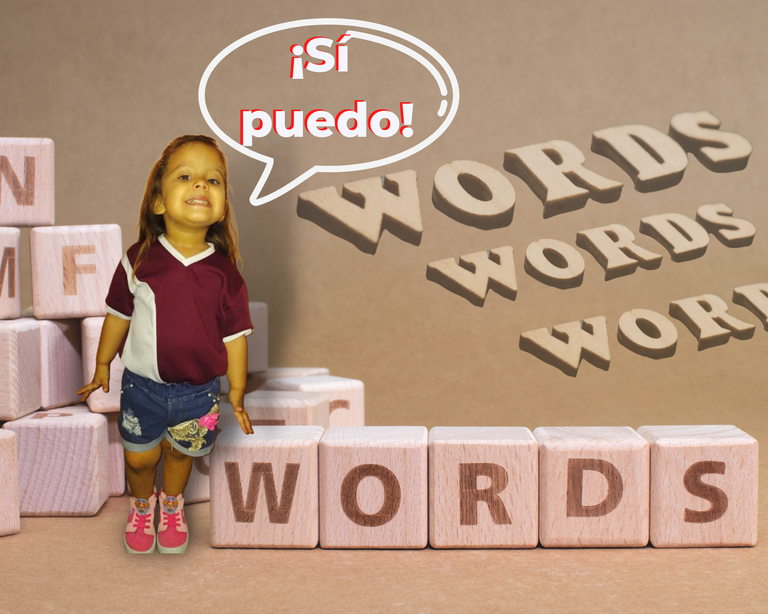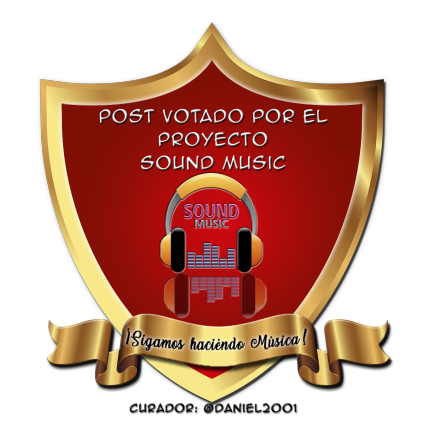Hello hello!
On this occasion I would like to start by sharing with you a story of something recent:
Danna, my 3-year-old daughter is adding words to her lexicon more and more. Among these is: "I can't." So sometimes when she wanted to go to the bathroom to do her physiological needs, I would tell her to go take off her underwear. Danna, on her side accepted the order and tried, but she quickly gave up and replied: "I can't mom". I'd stop whatever she was doing and tell her: "Yes she can Danna, yes she can". Thus, my little daughter was now registering a better phrase, a "If I can".
Just last night, while I was working on a design for an advertising poster, Danna was playing next to me with some Lego blocks (she is always by my side while I work). According to the game, there were some Legos that were the representation of herself and another character, in turn the decorative tube of the bed became like a kind of bridge that took a turn at the intersection with the Skateboard. Both characters were animated by Danna, one on each hand, with a different movement and voice. When trying to cross, "Danna lego said: I can't, I can't", to which the other character said: "Yes, Danna, yes she can" (in a tone of encouragement). Lego Danna successfully crossed over and my real Danna celebrated by screaming happily.
My husband and I, who were listening to everything, looked at each other and smiled together. Danna is a happy girl...


Now, seeing all that context, it made me think carefully that words have awesome power on our children. Witnessing how my daughter supported herself in the characterization of a character, was like the key sign that we as adults must take great care of what we say and transmit to our children. This happens, because a boy or girl in his early life works like a sponge that acquires or absorbs much of what surrounds him, therefore ensuring a healthy environment is essential for us as emotionally responsible parents.
From my side, it also came to my mind: What would have happened if I was encouraged "I can't" instead of "Yes I can"?
I'm sure that Danna would have then constantly addressed the "I can't" in simple day-to-day complexes, just as she did when she received the order exposed at the beginning of the story. In addition, it is likely that this could affect him immediately in terms of learning new things. From a very personal point of view, I think that the ideal thing is to encourage our boys and girls with encouraging and motivating phrases, giving them reasons to achieve it instead of letting them give up.
In addition to this, we as adults must be aware of the power of words, that they be used to form and build the positive personality of our children and not to highlight negativity and pessimism.

Thank you for her attention, sincerely: Ana Pialejo, under my username: @pialejoana.
History and texts of my authorship. Dividers and banner of my authorship, made using Canva.

Versión en Español:
¡Hola, hola!
En esta ocasión quisiera iniciar compartiendo con ustedes una historia de algo reciente:
Danna, mi hija de 3 años está cada vez sumando palabras a su léxico. Entre éstas se encuentra: "No puedo". Así que en ocasiones cuando ella quería ir al baño a hacer sus necesidades fisiológicas, yo le decía que fuese quitandóse su ropa interior. Danna, por su lado aceptaba la orden y lo intentaba, pero me desistía rápido y me respondía: "No puedo mamá". Yo dejaba lo que fuera que estaba haciendo y le decía: "Si puede Danna, si puede". Así, mi pequeña hija iba registrando ahora una mejor frase, un "Si puedo".
Anoche justamente, mientras yo trabajaba en un diseño de un poster publicitario, Danna se encontraba jugando a mi lado con unos bloques de lego (siempre está a mi lado mientras trabajo). Según el juego, había unos legos que era la representación de ella misma y otro personaje, a su vez el tubo decorativo de la cama se volvía como una especie de puente que tomaba giro en el cruce con el Monopatín. Ambos personajes eran animados por Danna, uno en cada mano, con un movimiento y voz diferente. Al intentar cruzar, "Danna lego decía: No puedo, no puedo", a lo que el otro personje dijo: "Si puede Danna, si puede" (en tono de ánimo). Danna lego cruzó satisfactoriamente y mi Danna real celebró gritando felizmente.
Mi esposo y yo que estabamos escuchando todo, nos míramos y sonreímos juntos. Danna es una niña feliz...


Ahora, al ver todo ese contexto, me hizo pensar detenidamente que las palabras tienen un poder impresionante en nuestros niños. Ser testigo de como mi hija se daba apoyo ella misma en la caracterización de un personaje, fue como la muestra clave de que nosotros como adultos debemos cuidar mucho lo que decímos y transmitimos a nuestros niños. Ésto sucede, porque un niño o niña en su vida temprana funcionan como una esponja que adquiere o absorbe gran parte de lo que le rodea, por ello velar por un entorno saludable es imprescindible de dar nosotros como padres emocionalmente responsables.
Desde mi lado, también llegó a mi mente: ¿Qué hubiera pasado si yo fuese fomentado "No puedo" en vez de "Si puedo"?
Estoy segura de que Danna hubiese luego abordado constantemente el "No puedo" en complejos simples del día a día, tal como lo hacía al recibir la orden expuesta al inicio de la historia. Además, es probable que esto pudiera afectarle de manera inmediata en cuanto al aprendizaje de nuevas cosas. Desde un lado muy personal, pienso que lo idóneo es fomentar en nuestros niños y niñas frases alentadoras y motivadoras, darle razones para lograrlo en vez de dejarlo desistir.
Aunado a ello, nosotros como adultos debemos tener conciencia respecto al poder de las palabras, que éstas sean usadas para formar y edificar la personalidad positiva de nuestros niños y no para resaltar la negatividad y pesimismo.

Gracias por su atención, atentamente: Ana Pialejo, bajo mi usuario de : @pialejoana.
Historia y textos de mi autoría. Separadores y banner de mi autoría, hechos usando Canva.

